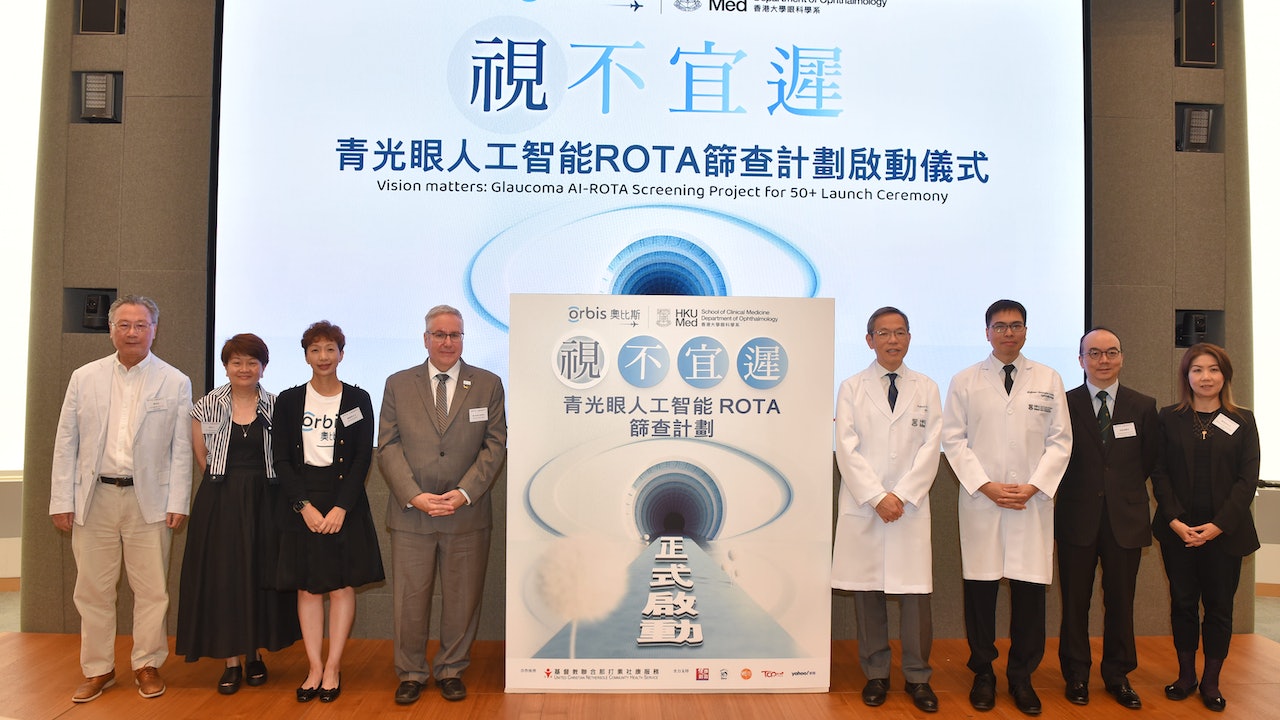To detect patients with glaucoma and macular damage in a timely manner, HKU Faculty of Medicine and Orbis have launched the Glaucoma Screening Programme, which will set up 3,000 places in the first phase to select public housing households in Southern District, Kwun Tong and Tai Po District, and residents aged 50 and above can make online appointments with invitation letters and proof of address, including vision examination, intraocular pressure test, optical tomography, etc.
Orbis and the Department of Ophthalmology of the University of Hong Kong launched the "Vision" Without Delay - Glaucoma AI ROTA Screening Programme. (Provided by interviewee)
An earlier study by the Department of Ophthalmology at HKU found that 72% of patients with early glaucoma had axonal fiber loss in the macula and central retinal regions, which affects central vision. As patients with glaucoma and macular damage are at higher risk of losing central vision, the Department of Ophthalmology of the Faculty of Medicine of HKU and Orbis have launched a screening programme to provide free comprehensive eye examination services to over 3,000 randomly selected Hong Kong PRH residents aged 50 or above.
3000,<> places are available for residents of Southern District, Kwun Tong and Tai Po District
As for the first phase, there will be a quota of 3,000 places, with "lucky winners" drawn by public housing households in the Southern District, Kwun Tong and Tai Po Districts, each with two places, for glaucoma screening at the University of Hong Kong Eye Centre, Kwun Tong District Health Station and Tai Po District Health Station. Residents aged 50 and above can make an appointment online with an invitation letter and proof of address, including vision examination, intraocular pressure test, optical tomography (OCT) imaging and medical consultation with an ophthalmologist, and referral to public or private ophthalmic clinics for follow-up treatment if residents are screened for further treatment. The second phase of the Scheme will also be rolled out to the whole of Hong Kong next year.
Since macular damage in glaucoma is difficult to detect by traditional clinical diagnostic methods, the program also uses ROTA technology, which can detect optic nerve fibers on the retina non-invasively and contactlessly, significantly improving the accuracy of early detection of optic nerve damage caused by glaucoma, including damage within and outside the macula, and the accuracy of diagnostic methods is 30% higher than that of traditional methods.
HKU-CUHK collaborates in research and development of new technology to diagnose early glaucoma The sensitivity is the highest and nearly 10% of wet age-related macular degeneration, which can cause blindness within weeks Group push injection treatment subsidizes up to 8,<> yuan, online classes under the epidemic, excessive use of electronic screens to cause strabismus <>-year-old female woman uses a mobile phone for <> hours a day and has severe cross-eyed fighting
